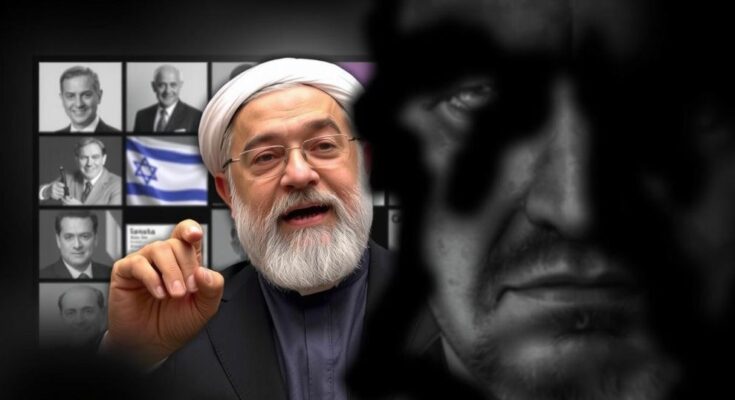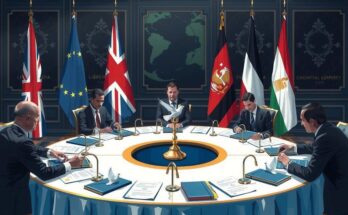Iranian Foreign Minister Abbas Araghchi warned that any new Israeli attacks could trigger widespread war, emphasizing Iran’s readiness to defend itself. He discussed Iran’s diplomatic relations with China and Middle Eastern nations, along with concerns regarding Syria’s stability and Hezbollah’s resilience in Lebanon. Araghchi framed the Israel-Hamas negotiations as a setback for Israel, reiterating support for a ceasefire if agreed upon by Palestinians. He criticized the U.S. withdrawal from the nuclear agreement and voiced hopes for a peaceful 2025.
In a recent interview with China’s CCTV, Iranian Foreign Minister Abbas Araghchi escalated rhetoric against Israel, asserting that any further attacks by the latter would ignite an extensive conflict. This statement was made during Araghchi’s inaugural visit to China in his new role, where he also highlighted Iran’s readiness to counter Israeli aggression despite a commitment to diplomatic resolutions with varied Middle Eastern nations, supported by allies like China.
During discussions, both Araghchi and Chinese Foreign Minister Wang Yi scrutinized bilateral relations, referencing notable diplomatic engagements including an October 2024 visit by Iranian President Masoud Pezeshkian to meet with Chinese President Xi Jinping. Emphasizing the importance of these ties, he characterized China as Iran’s principal ally, underscoring the potential impact of their alignment in light of regional tensions.
Araghchi further addressed the alarming developments in Syria, noting the unexpected rapid evolution of the rebellion and denouncing the possibility of Syria becoming a terrorist haven. He emphasized that the future of Iran-Syria relations is contingent upon the actions of the newly established Syrian government led by Abu Mohammad al-Julani, asserting Iran’s good intentions toward stabilizing Syria and protecting all its ethnic groups.
In regard to Lebanon, Araghchi praised Hezbollah’s resilience, affirming that the organization will emerge stronger following their recent challenges against Israeli forces. He argued that Hezbollah’s capability to inflict casualties on the Israeli military had compelled Israel to accept a ceasefire.
Turning to the ongoing Israel-Hamas conflict, Araghchi depicted the ceasefire negotiations as an indicative defeat for Israel, which he claimed was forced to engage in talks despite its initial intentions to dismantle Hamas. He expressed Iran’s endorsement of any ceasefire that receives the consent of Hamas and the Palestinian people.
Finally, addressing the nuclear deal negotiations, Araghchi lamented the United States’ withdrawal from the agreement, labeling it a strategic error and underscoring the critical need for renewed discussions. He concluded with an optimistic vision for 2025, wishing for a world characterized by peace, justice, and adherence to international law.
Tensions between Iran and Israel have been a significant concern in Middle Eastern geopolitics, often marked by military confrontations and diplomatic maneuvering. Iranian officials frequently warn of severe repercussions in the event of further Israeli attacks. Additionally, Iran seeks to foster strong alliances, particularly with China, as it navigates a complex landscape influenced by regional conflicts such as the Syrian civil war and the ongoing issues regarding the Palestinian territories. The recent Iranian foreign minister’s statements exemplify Tehran’s strategic approach towards regional stability and deterrence against perceived aggressors.
In conclusion, Abbas Araghchi’s statements during his visit to China reflect Iran’s determined stance against Israeli aggression while promoting diplomatic engagement with key allies. His insights on Syria underscore the intricate dynamics of regional politics, emphasizing the need for a nuanced approach to conflicts. Furthermore, his commentary on the Israel-Hamas negotiations and the nuclear deal highlights Iran’s aspirations for greater influence in the Middle East, advocating for peace and stability in the region.
Original Source: www.jpost.com




